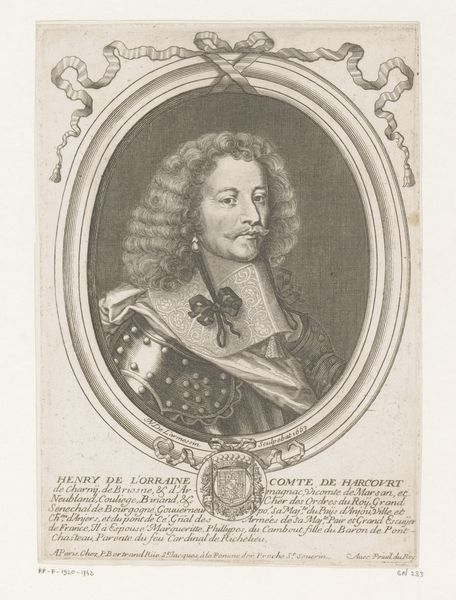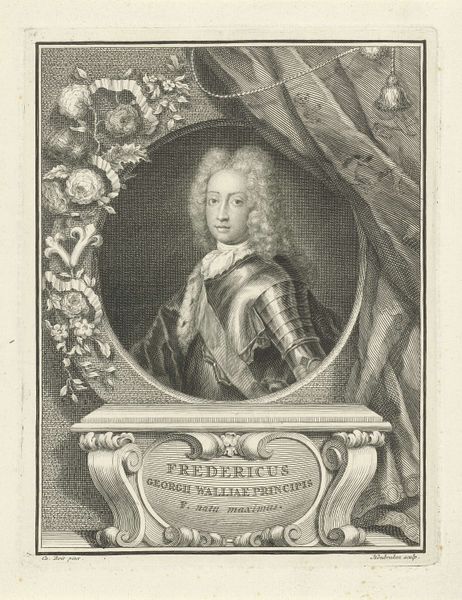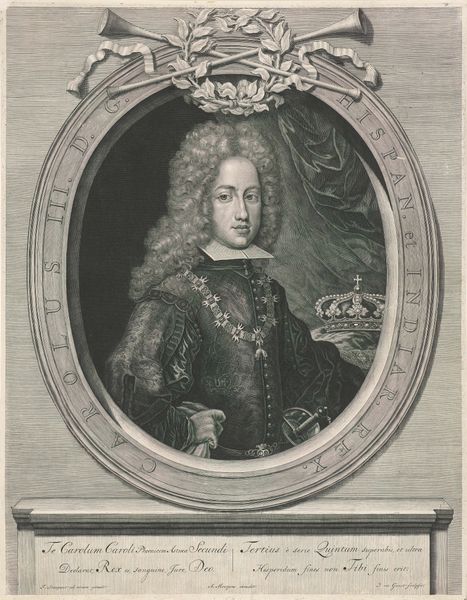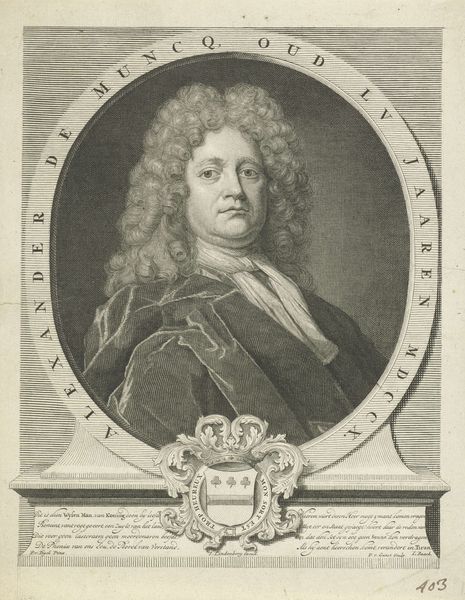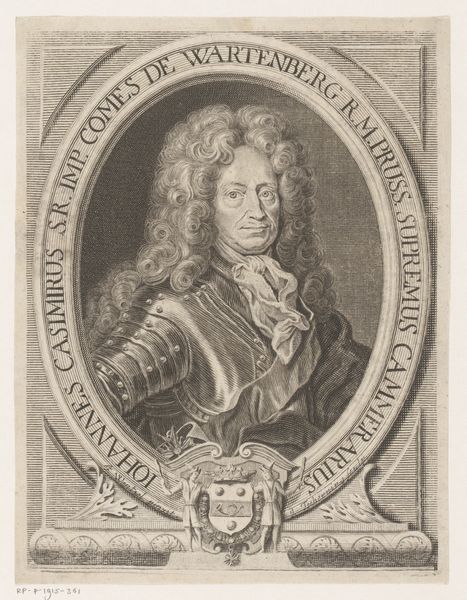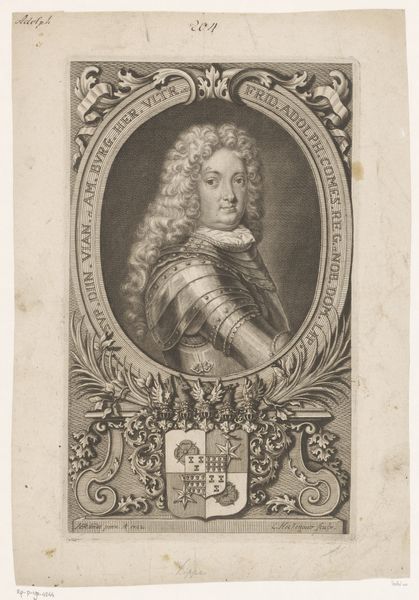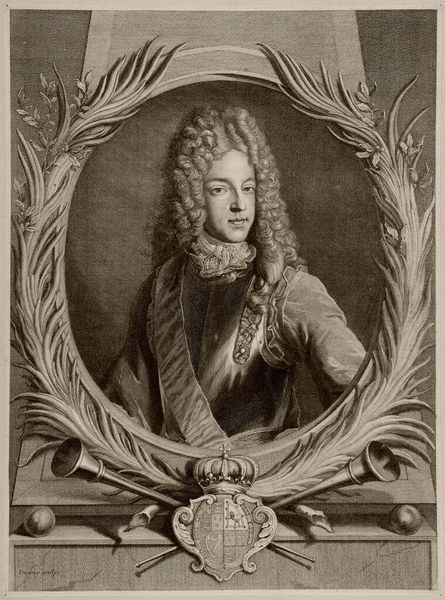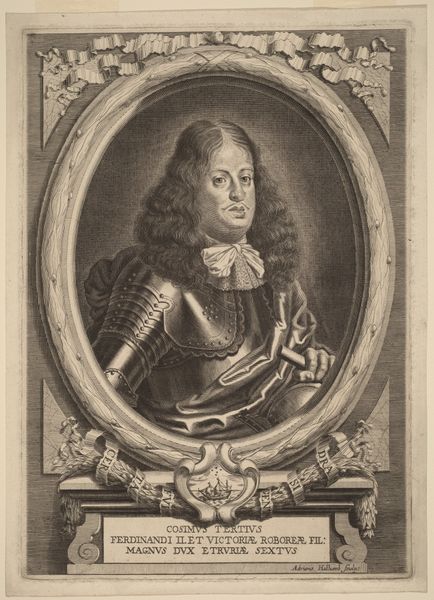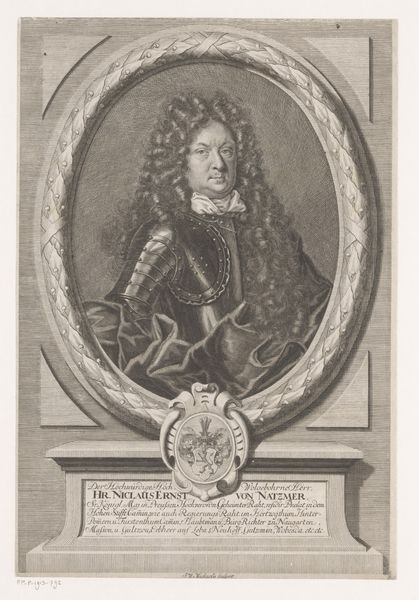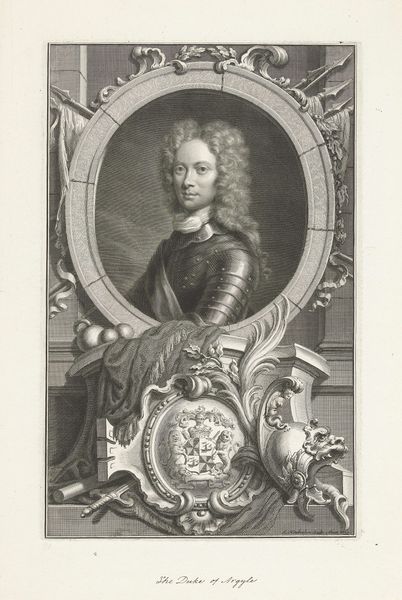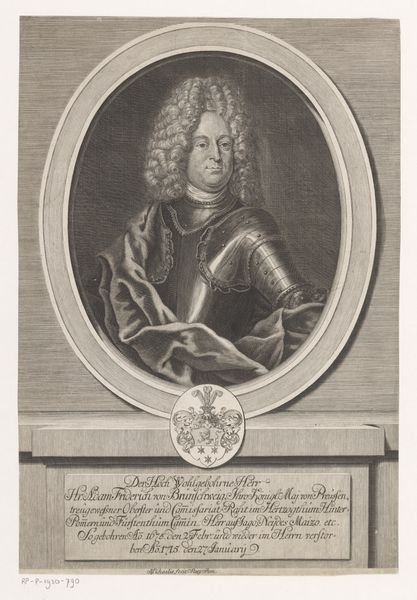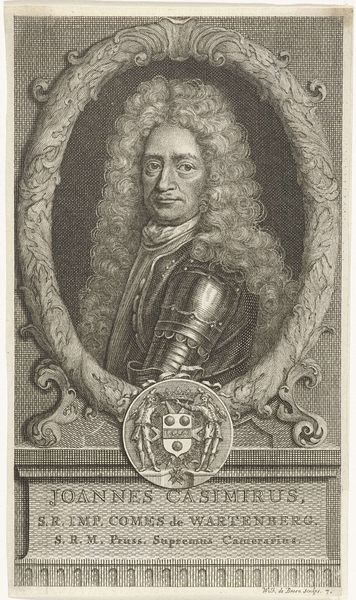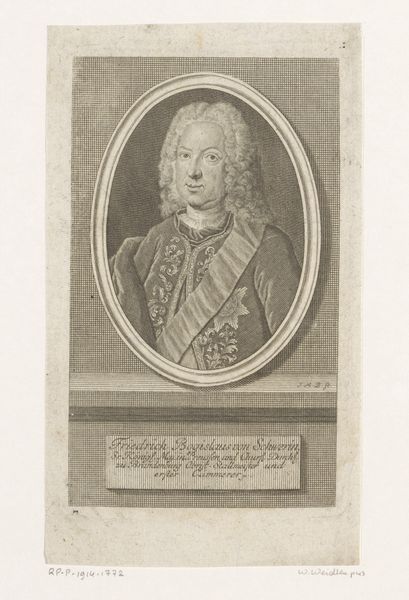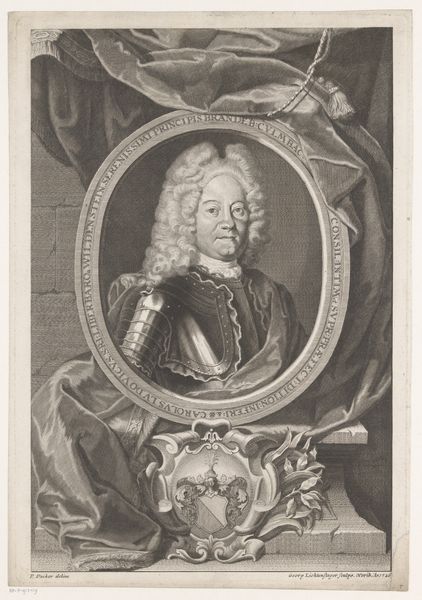
Portret van Frederik Willem I, koning van Pruisen als kroonprins 1700 - 1713
0:00
0:00
print, engraving
#
portrait
#
baroque
# print
#
old engraving style
#
highly detailed
#
limited contrast and shading
#
history-painting
#
academic-art
#
engraving
#
columned text
Dimensions: width 280 mm, height 372 mm
Copyright: Rijks Museum: Open Domain
Editor: So, this is "Portret van Frederik Willem I, koning van Pruisen als kroonprins," made sometime between 1700 and 1713 by Pieter van Gunst. It's an engraving, a print. It feels very formal, almost like a symbolic declaration. What strikes you about this piece? Curator: The immediate visual language that speaks to me are the symbols embedded within this portrait of the Prussian Crown Prince. Note the laurel wreath; an ancient symbol of victory and status. This immediately elevates Frederick William. Editor: Absolutely! It frames him, literally and figuratively. Curator: Exactly. And then, look beneath the portrait; the intricate crest coupled with inscriptions acts as a visual representation of his lineage and divine right to rule. It almost operates as an official decree. What message do you think this image intended to convey? Editor: I think it’s trying to legitimize his rule before he even took the throne, to create a sense of established power. Curator: Precisely. Even his youthful face doesn't detract from the air of authority. The baroque period loved this kind of complex layering of symbolism to underscore power and continuity. Editor: It’s fascinating how an image can act as a historical and cultural document all at once. I'll definitely be paying more attention to those visual cues moving forward. Curator: Indeed. It reminds us that portraits of this era functioned as both personal representations and powerful tools of statecraft. It's a beautiful reminder of how imagery can speak volumes, if you learn how to listen.
Comments
No comments
Be the first to comment and join the conversation on the ultimate creative platform.
